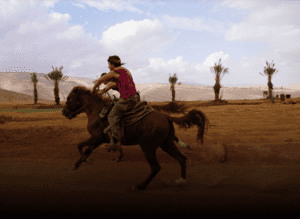“Thou shalt slaughter of thy herd and of thy flock, which the Lord hath given thee, as I have commanded thee, and thou shalt eat within thy gates, after all the desire of thy soul” (Deuteronomy 12:21).
The Bible lists features that make an animal kosher, but an animal listed as kosher only becomes kosher when slaughtered and prepared in a very specific way. There are many rules that apply to the slaughter and consumption of meat in order to render it kosher. For example, one may not eat a limb torn from a live animal, even if it is of a kosher animal. Many modern farms probe animals with electric shocks before they are slaughtered, and this practice is deemed cruel and damaging to the animal’s health, and therefore forbidden by kosher laws. An animal that dies on its own, or is killed in a different way other than being slaughtered properly is not considered kosher. The laws of proper slaughter are not detailed in the Bible, they were told by God orally to Moses, as it is written, “as I have commanded thee.” This oral tradition has been maintained for thousands of years, and all Jewish people, from all over the world, slaughter their animals in the exact same way. This special type of slaughter is called shechitah, and must be performed in a swift motion with a sharp knife which is checked closely with a fingernail to make sure it has no knicks. This is to ensure minimal pain to the animal.
Treating the animal humanely and minimizing its discomfort stretches beyond the physical treatment of the animal. Along with other rules of kosher meat, it says in Deuteronomy 14:21, “Thou shalt not cook a goat in its mother’s milk.” The Bible understands how insensitive it would be to cook an animal in the milk of its own mother, and so Jewish dietary laws restrict all consumption of meat with dairy, including poultry with dairy, lest one confuse it with beef.
There are other, more specific laws regarding kosher meat. There are certain parts of the animal that one may not consume. Eating animal blood is forbidden, and so we salt the animals with kosher salt to absorb all of the blood before it can be considered kosher. This is where the name kosher salt comes from.
We also commemorate the fight between Jacob and the Angel. The Angel struck Jacob on his thigh, “Therefore the children of Israel eat not the sinew of the thigh-vein which is upon the hollow of the thigh, unto this day; because he touched the hollow of Jacob’s thigh, even in the sinew of the thigh-vein” (Genesis 32:33). The thigh vein of the cow is considered not kosher and may not be consumed.
It is remarkable to note than an ancient text like the Bible would be so progressive in its treatment of animals. When it was written thousands of years ago, few people considered the physical and emotional ordeal that an animal goes through, but it was already on our radar, and the Jewish people have been upholding it since the time of Moses.




